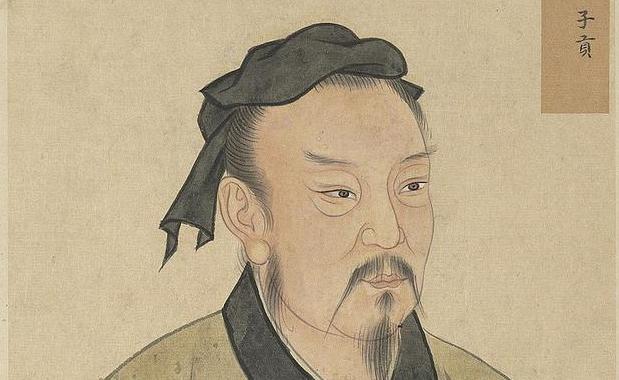Confucius was a representative figure of Confucianism, with many disciples, and he was also very good at educating people, leaving a lot of beautiful talk for future generations. Among his many disciples, Zigong, Zilu, YanHui, and Zengshandu Qingshi left their names, especially Zigong, as one of the "Ten Philosophers of Confucius", he once served as an official to the state of Lu, and when the state of Lu was in danger, he lobbied between the state of Qi, the state of Wu, and the state of Yue, all by his own mouth, so that the state of Lu could survive.
Zigong is not only a representative figure of Confucianism, but also known as the "originator of Confucianism", because he has a lot of income from business, so his family is also very well-off. But this family is well-off, but also let Zigong do some things that others can't do or won't do, and the things he wants to talk about next have something to do with his family's good situation.

Zigong was Confucius's proud protégé
In the "Spring and Autumn of the Lü Dynasty", it is recorded that there was a law in the State of Lu, if the people of the State of Lu found other People of the State of Lu as slaves in other princes, they could pay for it, and the ransom state would not let you go out in vain, and you could reimburse the corresponding ransom by going to the government to report it. This was a very humane regulation, but Zigong did not implement it.
Once, when Zigong was out, he encountered a Luguo man who was a slave, so he paid for him to redeem his free body. Maybe because the ransom was not much, or because Zigong's family was too well-off, he thought that this little money could not be reimbursed by the government, so he did not ask for this money. Everyone heard that Zigong had done this great good deed, but they did not take anything, and they all praised his high virtue and praised him one after another. Only Confucius was very unhappy when he found out, and the people were very puzzled.
Confucius explained: "Zigong has done something wrong, from now on, I am afraid that the people of the Lu kingdom will not do the thing of ransom again." This money will not damage virtue, but if you don't want money, I'm afraid that no one will redeem people anymore! Confucius's words are a bit confusing, beneficial to virtue, why criticize Zigong? Here we will put forward two concepts, "public morality" and "private morality".
There is a difference between public morality and private morality
The so-called "public morality" is a moral behavior that everyone agrees to abide by and abides by together, but because everyone must abide by it, the premise is that everyone can basically do it, which is within their ability. For example, helping the grandmother cross the street, collecting gold, loving the young and so on.
And "private morality" is also a good thing in terms of results, in line with moral standards, and also worthy of praise. But the difference is that "private morality" is affected by differentiated things such as an individual's origin, status, and family situation, and not everyone can do it. For example, "donation" is a "public morality", but donating 100 yuan or 10,000 yuan is "private morality". It cannot be said that a person who does not take the next meal donates 100 yuan too little, nor can it say that a person who earns millions of dollars a year donates 10,000 yuan is more.
This is because if we raise some "private morality" to the level of "public morality", there will be "inner volumes", and this new "public morality" threshold is too high, but some people who originally have the ability to do "public morality" are discouraged, no one praises, and even cold words.
Let's talk about Zigong again, because he was not ransomed for doing good deeds, he invisibly raised the threshold of "public morality" of "ransom", then this ransom is indifferent to Zigong, it is within the scope of his "private morality", but he has added his own standard to "public morality", and in the future, when others want to do this good deed, they will have a lot of worries. Asking for a ransom will make people feel that there is no "public morality", and the ransom is beyond their own ability, so they will not do good.
Confucius's fears are not unreasonable
Therefore, what Confucius was worried about was exactly this, Zigong's behavior belonged to his "private morality", staying at his personal level was fine, if the monarch of the State of Lu praised, publicized, or even used him as a "benchmark", it would only be exchanged for a false moral level improvement, but behind it planted the seeds of the "public morality" standard being raised, and then let everyone not do good things.
Therefore, the reason why saints are saints is because they see problems deeply, think comprehensively, and can consider the lives of the people. Confucius did this, and it cannot be said that it is not high.